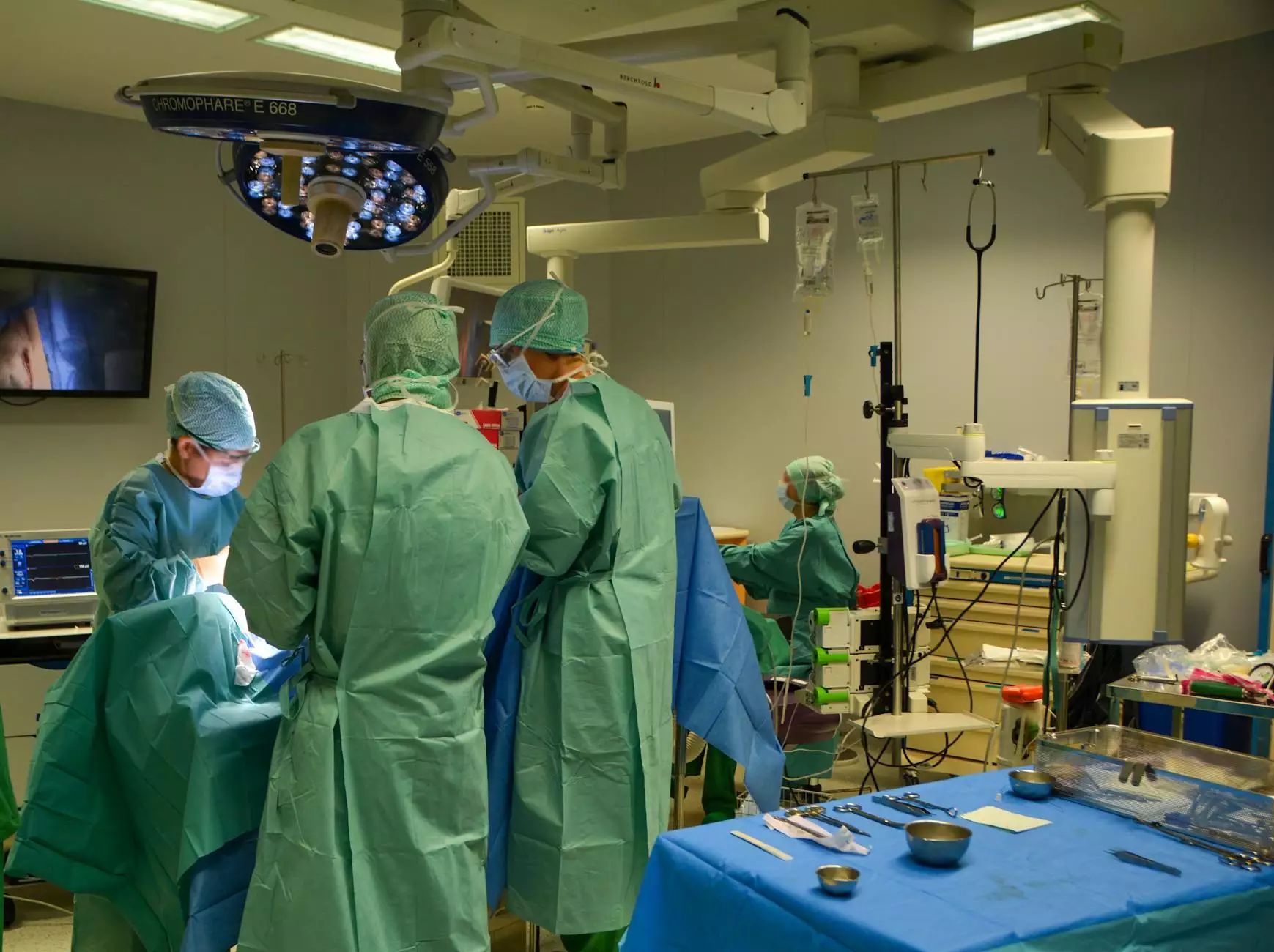The Sleeve Gastrectomy Procedure: A Comprehensive Guide

The rise in obesity rates worldwide has led to an increased interest in weight loss surgeries, and one of the most effective procedures available today is the sleeve gastrectomy procedure. This article will offer an in-depth discussion about the procedure, its benefits, potential risks, and what patients can expect during their journey towards better health.
What is Sleeve Gastrectomy?
Sleeve gastrectomy, also known as vertical sleeve gastrectomy (VSG), is a type of weight-loss surgery that involves the removal of a large portion of the stomach. This surgical intervention reduces the stomach size to about 15% of its original capacity, resulting in a sleeve-like structure that resembles a banana. The procedure not only limits food intake but also alters gut hormones that control appetite and blood sugar levels, making it a powerful tool in the fight against obesity.
How is the Sleeve Gastrectomy Procedure Performed?
The sleeve gastrectomy procedure typically follows a minimally invasive approach, utilizing laparoscopic techniques. This means that the surgeon makes several small incisions in the abdomen rather than one large incision. Here’s a step-by-step breakdown of the procedure:
- Anesthesia: The patient is placed under general anesthesia to ensure comfort throughout the operation.
- Incisions: Several small incisions are made in the abdomen for the laparoscope and surgical instruments.
- Stomach Reduction: A significant portion of the stomach (around 75-80%) is removed, creating the sleeve shape.
- Closure: The incisions are then closed with sutures or staples, and the patient is taken to recovery.
Benefits of Sleeve Gastrectomy
The sleeve gastrectomy procedure offers numerous benefits that can significantly improve a patient’s quality of life. Some of these advantages include:
- Effective Weight Loss: Most patients can expect to lose 50-70% of their excess weight within the first year after surgery.
- Improved Health conditions: Conditions such as type 2 diabetes, hypertension, and sleep apnea often improve or resolve altogether.
- Lower Risk of Obesity-Related Health Issues: Weight loss reduces the risks of chronic diseases and increases overall longevity.
- Enhanced Quality of Life: Patients often report improved physical health, increased mobility, and better mental health after surgery.
Who is a Candidate for Sleeve Gastrectomy?
Not everyone is a suitable candidate for the sleeve gastrectomy procedure. Ideal candidates typically include:
- Individuals with a Body Mass Index (BMI) of 40 or higher, or a BMI of 35 with related health conditions.
- People who have tried and failed to lose weight through diet and exercise.
- Individuals who are willing to commit to a healthy lifestyle post-surgery, including regular follow-ups and nutritional guidance.
- Those without serious health issues that would complicate surgery.
Potential Risks and Complications
Like any surgical procedure, the sleeve gastrectomy procedure comes with associated risks. Some potential complications include:
- Infection: As with any surgery, there is a risk of infection at the incision sites.
- Blood Clots: Post-operative blood clots can occur in the legs or lungs.
- Leakage: Gastric fluid can leak from the surgical site, leading to further complications.
- Nutritional Deficiencies: Due to reduced food intake, some patients might experience vitamin and mineral deficiencies.
Preparing for Sleeve Gastrectomy
Preparation is key to ensuring a successful sleeve gastrectomy procedure. Here are steps to follow:
- Consultation: Schedule a comprehensive consultation with a qualified bariatric surgeon to discuss your medical history, weight loss goals, and the risks involved.
- Medical Evaluation: Undergo medical tests to assess your overall health and determine your candidacy for the surgery.
- Dietary Changes: A pre-operative diet is often recommended, which may include liquid meals to reduce the size of the liver and reduce complications.
- Support System: Inform family and friends about the procedure for emotional and practical support during recovery.
The Recovery Process
Recovery from the sleeve gastrectomy procedure is gradual and varies from person to person. Here is an overview of what to expect:
Immediate Post-Operative Care
After surgery, patients spend 1-3 days in the hospital for monitoring and to manage any post-surgical pain or complications.
At Home
Once sent home, patients can expect to follow a specific recovery plan, which typically includes:
- Dietary Progression: Initially, a liquid diet is recommended, gradually progressing to pureed foods and eventually solid foods.
- Physical Activity: Light walking is encouraged soon after surgery, followed by a gradual return to normal activities as advised by the surgeon.
- Follow-Up Appointments: Regular check-ups with the healthcare team to monitor weight loss and nutritional intake.
Long-Term Success After Sleeve Gastrectomy
Success after the sleeve gastrectomy procedure depends significantly on adherence to lifestyle changes. Here are important components for long-lasting results:
- Healthy Eating: Focus on a balanced diet consisting of protein-rich foods, fruits, vegetables, and whole grains while avoiding high-sugar and processed foods.
- Regular Physical Activity: Engage in regular exercise that suits your abilities and promotes weight maintenance.
- Support Groups: Join support groups for peer motivation and guidance throughout your weight loss journey.
- Ongoing Medical Care: Regular follow-ups with your surgeon and nutritionist to address any concerns and monitor your health.
Conclusion
The sleeve gastrectomy procedure has proven to be an effective option for those struggling with obesity. By understanding the procedure, potential risks, and the importance of lifestyle changes, patients can better prepare for this transformative journey. If you’re considering this life-changing surgery, consult with our specialists at The Wellcome to learn more and take the first step towards a healthier future.
© 2023 The Wellcome. All rights reserved.









